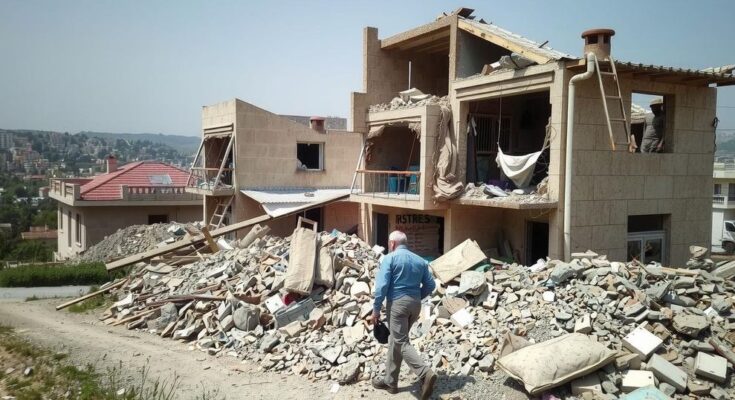The humanitarian crisis in Gaza has worsened due to escalating violence and lawlessness, with gangs routinely attacking aid convoys and hindering delivery efforts. The UN has reported significant casualties among aid workers, while complaints against Israel’s failure to protect humanitarian activities have risen. Cold weather has further endangered vulnerable populations, and a decision to ban UNRWA’s aid operations adds complexity to the crisis.
Lawlessness and violence have intensified in Gaza, where gangs routinely target humanitarian aid convoys, exacerbating the already dire humanitarian crisis. These unfortunate events unfold amidst ongoing Israeli airstrikes against Hamas positions in northern Gaza, hindering aid delivery even further. Tom Fletcher, the UN Undersecretary-General for Humanitarian Affairs, has described Gaza as one of the most perilous contexts in which humanitarian workers currently operate, highlighting the staggering casualties among aid personnel since the beginning of the conflict.
As of late November, it was reported that over 333 humanitarian workers had succumbed to violence in Gaza since the onset of hostilities following Hamas’ attack on southern Israel on October 7, 2023. The majority of the fatalities involved personnel from UNRWA and the International Red Cross. UN and U.S. officials have criticized Israel for failing to curb the looting of humanitarian aid, despite initial commitments to improve conditions in the region.
Building upon this worrying scenario, the harsh winter has posed additional threats to vulnerable populations, particularly children, contributing to fatalities attributed to extreme cold. Furthermore, Israel’s recent decision to prohibit UNRWA’s operations—an organization integral to supplying aid in Gaza—has raised severe concerns regarding the welfare of over 2 million affected individuals. This prohibition is purportedly based on accusations of UNRWA staff involvement in the Hamas attacks.
Robert Blecher, an expert at the International Crisis Group, asserts that while Israel can justifiably restrict UNRWA’s activities based on national security, such actions should not deprive civilians of necessary assistance. Concurrently, proposals for utilizing private contractors to deliver aid have surfaced, raising questions about feasibility and control in an environment already plagued by uncertainty and violence.
The landscape of humanitarian aid in Gaza remains extremely vulnerable as looting incidents continue to escalate, accounting for significant losses of aid. Major gaps in accountability and safety further complicate efforts to provide much-needed assistance effectively. Amidst all these developments, the International Criminal Court has raised severe allegations against Israel regarding the potential manipulation of starvation as a method of warfare.
The reality of Gaza appears bleak, as rising attacks on aid convoys underscore a pervasive environment of lawlessness. Reports indicate that significant portions of humanitarian relief are intercepted, with some aid supplies even reportedly being sold on local markets. The ongoing violence and the obstacles presented by both state and non-state actors have led to an environment where aid organizations often find it increasingly difficult to operate safely.
Consequently, critiques suggest that Israel is neglecting its responsibilities under international humanitarian law, failing to safeguard the welfare of civilians in the territory. Lack of effective policing or governance exacerbates these challenges, with armed groups emerging as dominant forces amid the turmoil in Gaza, resulting in a desperate situation for the local population.
The ongoing conflict in Gaza has created an environment marked by extreme chaos and violation of humanitarian principles. The situation has worsened since the Hamas attack on Israel, leading to significant casualties among humanitarian workers and heightened struggles in delivering aid. Major systemic issues include looting by gangs, military offensives, and the obstruction of aid organizations’ activities, significantly challenging efforts to alleviate the humanitarian crisis in the region.
In summary, the humanitarian landscape in Gaza is in disarray as violence and lawlessness impede crucial support efforts for the civilian population. With rising incidences of looting and related attacks, the delivery of aid has become extremely perilous, and criticism is directed toward Israel for its perceived inaction and complicity in exacerbating humanitarian suffering. The urgent need for a resolution and restoration of order is paramount as civilians continue to bear the brunt of the crisis.
Original Source: www.arabnews.com




